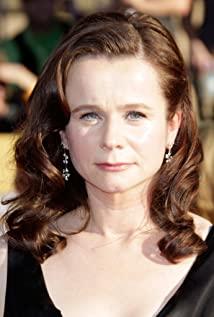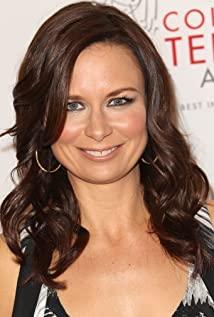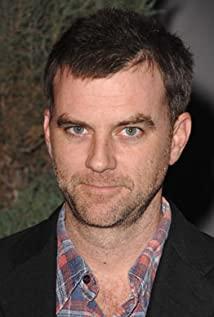There is no lack of love descriptions in PTA's works, but a complete film is used to describe the interaction between two people, the emotions are progressive, and the only ones that produce love and achieve a certain result are "Private Love Disorder" and "Phantom Sewer". The two films are separated by 15 years. PTA was only 30 years old when the filming of "Incompatibility" Then the moment it plunged into the water. The male protagonist Barry is a very weird person, wearing a fat blue suit, has a different idea of reality, accepts the bombardment of his 7 sisters every day, the moment of mental fragility is on the brink of explosion, but facing others to him In many cases, they are in a state of ignorance. The heroine Lena deliberately and premeditatedly appeared from the beginning, which felt a little abrupt, until she made it clear to Barry that she had been interested in him for a long time, the feeling of falling from the sky became stronger. After the two dated and dated, Barry's large and small episodes caused by his mental and emotional instability did not affect the development of their relationship. In fact, it was because of him all the time too. Much of the state makes this relationship rush forward. In the relationship between the two, Lena gave me the feeling that it was a weird, just perfect, perfect emotional object for Barry. She was gentle, smart, tolerant of Barry's behavior, and presented to Barry the emotional needs that he needed to respond to (this is exactly what he needed), and some shots even showed a sense of mythology with a sense of redemption. But this brisk love movie is different from "Magnolia". From the beginning, Barry portrayed as an ordinary person (not to mention that everyone is guilty). He has solved his own problems and passed all kinds of correctness. To pour out in an incorrect way, he completely opened himself up and accepted all contacts. As a fragile person, this is rare. Therefore, Lena’s appearance impacted his world with great force. He felt a steady flow of fresh and beautiful energy. Such a large-scale emotional input might make him a little bit unbelievable at first, as if he was floating in the air, and he tried to Push other obstacles away, away from this dream. And over time, the existence of Lena and this relationship became more and more real in his heart. The car accident was an important turning point, pulling Lena back to the real world (previously in the movie, Barry's world, Lena's image was enveloped There is a goddess color), she will be hurt and bleed, and will have negative emotions of anger and disappointment, which constitutes a real person. This sense of sensory reality hit Barry to trigger him to solve the obstacles and stay with Lena for a long time. So far, the film has come to a happy ending. This film is undoubtedly developed from the perspective of the male protagonist (the image of the female protagonist is a bit thin in my eyes). PTA chose Adam Sandler, who was also young at the time, to play Barry. It made people guess that this role has a story, and The connection between the PTA itself. In fact, by the end of the film, I don’t think Barry has changed anything because of Lena. The final behavior is just a part of his original nature. Although there have been evasive behaviors, the appropriate mechanism can be triggered, and Lena’s entire film It is the only time that he put forward a slightly stronger need, and it is not asking him to change his inner self. Barry is young and still in the stage of self-exploration and self-opening. At this time, it is very difficult and unwilling for him to make changes for another person. Lena is an inclusive but not offensive object. At that time PTA was working with Fiona Apple is in love. I think a large part of this film is inspired by love. The relationship and roles of the two can also be glimpsed in the film. What surprised me was that I thought Apple’s origin and experience (born in an artistic family, Growing up in a single-parent family, having had traumatic experiences with different degrees of physical and psychological illnesses), it should be in love (I don’t want to call love an intimate relationship. This is a downgrading and narrowing of love out of fear. A safety card played to protect oneself) has greater emotional needs and needs the other party to heal more. Judging from the presentation of the film, the fact may be the opposite (if the PTA did not deliberately change it). This is a good proof of how ridiculous my previous idea that Apple is a "patient" who needs to be taken care of. Looking at the mv and lyrics of "across the universe" again, Apple is singing Sounds of laughter shades of earth are ringing in a chaotic, violent chaos, Through my open ears inciting and inviting me, Limitless undying love which shines around me like a, million suns, it calls me on and on, Across the universe, Jai guru de va om, Nothing's gonna change my world. She has a very strong, strong and unwavering power to love. I think a certain aspect of her personality is the same as Lena. Speaking of movies with a male perspective, women with a sense of abrupt fairy tales falling from the sky, it is easy to think of "Buffalo 66", but the temperament is obviously more fierce, violent, and "abnormal" than the PTA Vincent Gallo, which was shot by Vincent Gallo. The whole movie is full of criminal plunder, nervousness, and tremor. The one-way containment and healing, and the flat goddess of the heroine, "Buffalo 66" is also much stronger, but from the perspective of expressing willingness, PTA set a turning point in the second half of "Private Love Disorder" and wanted to change Character stories tend to be true. What Vincent expressed was more like realizing the fragmented fragments in his mind and then splicing them. It seemed that from the beginning, he didn't want to be close to reality, nor does it need to be true. As the first love film in PTA's career, "Private Love Disorder" I think is the most personal expression of his mood at that time. It is different from his other films. I have a more specific thinking about transcending the story itself. Object. (Of course, this article is only talking about the understanding of the character's story setting from my personal perspective, and does not include the aesthetics of the picture and the language of the lens.)
View more about Punch-Drunk Love reviews











